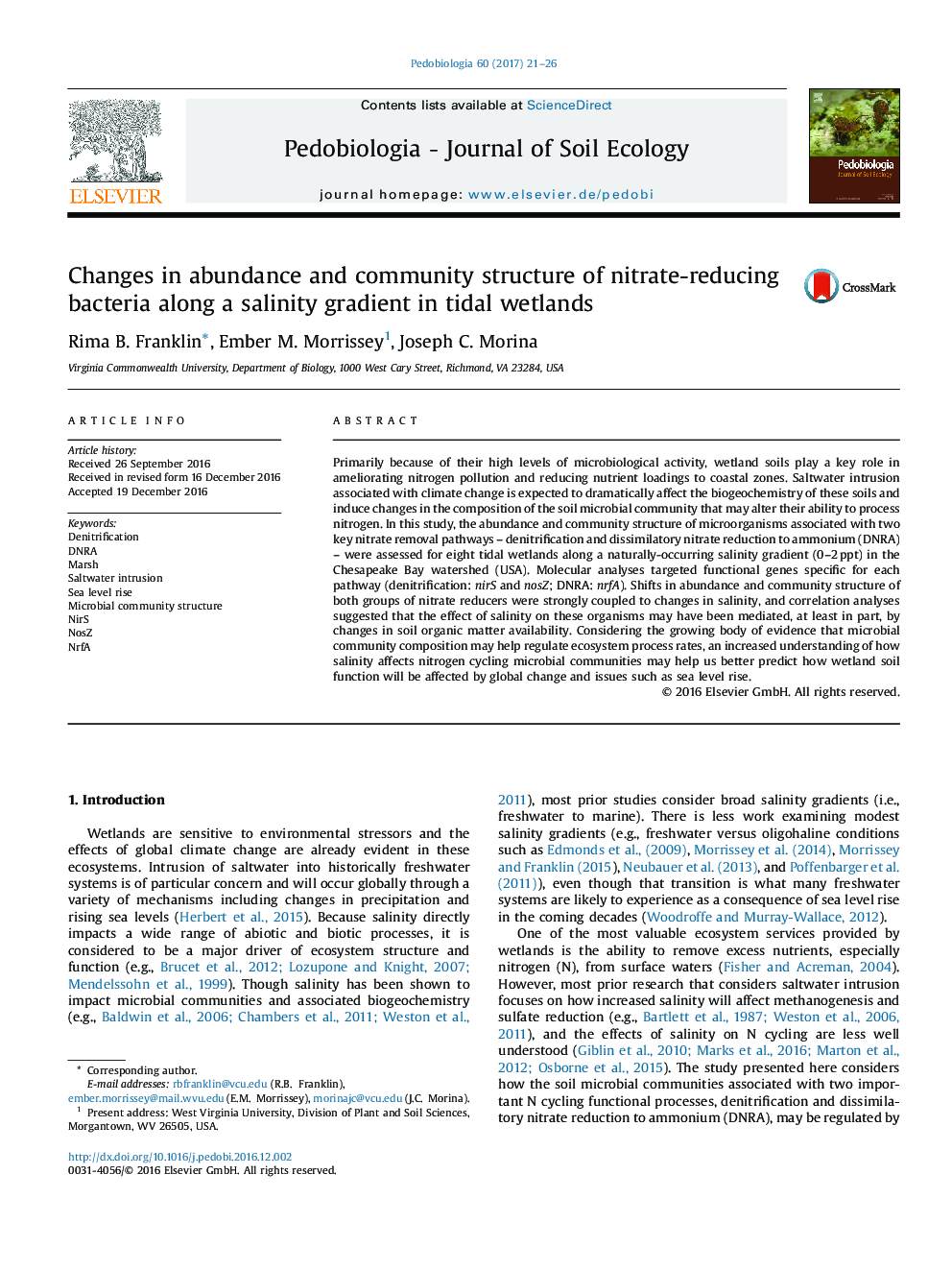| کد مقاله | کد نشریه | سال انتشار | مقاله انگلیسی | نسخه تمام متن |
|---|---|---|---|---|
| 5518760 | 1544022 | 2017 | 6 صفحه PDF | دانلود رایگان |
- Despite a narrow range of salinity, we observed significant effects on nitrate-reducing microbes.
- Positive relationship between salinity and denitrifier abundance.
- Salinity can affect community structure of both denitrifiers and DNRA-capable microorganisms.
- Potential for salinity increases and saltwater intrusion to affect nitrogen cycling in wetlands.
Primarily because of their high levels of microbiological activity, wetland soils play a key role in ameliorating nitrogen pollution and reducing nutrient loadings to coastal zones. Saltwater intrusion associated with climate change is expected to dramatically affect the biogeochemistry of these soils and induce changes in the composition of the soil microbial community that may alter their ability to process nitrogen. In this study, the abundance and community structure of microorganisms associated with two key nitrate removal pathways - denitrification and dissimilatory nitrate reduction to ammonium (DNRA) - were assessed for eight tidal wetlands along a naturally-occurring salinity gradient (0-2Â ppt) in the Chesapeake Bay watershed (USA). Molecular analyses targeted functional genes specific for each pathway (denitrification: nirS and nosZ; DNRA: nrfA). Shifts in abundance and community structure of both groups of nitrate reducers were strongly coupled to changes in salinity, and correlation analyses suggested that the effect of salinity on these organisms may have been mediated, at least in part, by changes in soil organic matter availability. Considering the growing body of evidence that microbial community composition may help regulate ecosystem process rates, an increased understanding of how salinity affects nitrogen cycling microbial communities may help us better predict how wetland soil function will be affected by global change and issues such as sea level rise.
Journal: Pedobiologia - Volume 60, January 2017, Pages 21-26
